
In folklore, a ghost (sometimes known as an apparition, haunt, phantom, poltergeist, shade, specter or spectre, spirit, spook, and wraith) is the soul or spirit of a dead person or animal that can appear to the living. In ghostlore, descriptions of ghosts vary widely from an invisible presence to translucent or barely visible wispy shapes, to realistic, lifelike visions. The deliberate attempt to contact the spirit of a deceased person is known as necromancy, or in spiritism as a séance.
The belief in the existence of an afterlife, as well as manifestations of the spirits of the dead, is widespread, dating back to animism or ancestor worship in pre-literate cultures. Certain religious practices—funeral rites, exorcisms, and some practices of spiritualism and ritual magic—are specifically designed to rest the spirits of the dead. Ghosts are generally described as solitary, human-like essences, though stories of ghostly armies and the ghosts of animals rather than humans have also been recounted. They are believed to haunt particular locations, objects, or people they were associated with in life.
The overwhelming consensus of science is that ghosts do not exist. Their existence is impossible to falsify, and ghost hunting has been classified as pseudoscience. Despite centuries of investigation, there is no scientific evidence that any location is inhabited by spirits of the dead.
Contents
Terminology
The English word ghost continues Old English gást, from a hypothetical Common Germanic *gaistaz. It is common to West Germanic, but lacking in North Germanic and East Germanic (the equivalent word in Gothic is ahma, Old Norse has andi m., önd f.). The pre-Germanic form was *ghoisdo-s, apparently from a root denoting "fury, anger" reflected in Old Norse geisa "to rage". The Germanic word is recorded as masculine only, but likely continues a neuter s-stem. The original meaning of the Germanic word would thus have been an animating principle of the mind, in particular capable of excitation and fury (compare óðr). In Germanic paganism, "Germanic Mercury", and the later Odin, was at the same time the conductor of the dead and the "lord of fury" leading the Wild Hunt.
Besides denoting the human spirit or soul, both of the living and the deceased, the Old English word is used as a synonym of Latin spiritus also in the meaning of "breath" or "blast" from the earliest attestations (9th century). It could also denote any good or evil spirit, such as angels and demons; the Anglo-Saxon gospel refers to the demonic possession of Matthew 12:43 as se unclæna gast. Also from the Old English period, the word could denote the spirit of God, viz. the "Holy Ghost".
The now-prevailing sense of "the soul of a deceased person, spoken of as appearing in a visible form" only emerges in Middle English (14th century). The modern noun does, however, retain a wider field of application, extending on one hand to "soul", "spirit", "vital principle", "mind", or "psyche", the seat of feeling, thought, and moral judgement; on the other hand used figuratively of any shadowy outline, or fuzzy or unsubstantial image; in optics, photography, and cinematography especially, a flare, secondary image, or spurious signal.
The synonym spook is a Dutch loanword, akin to Low German spôk (of uncertain etymology); it entered the English language via American English in the 19th century. Alternative words in modern usage include spectre (altn. specter; from Latin spectrum), the Scottish wraith (of obscure origin), phantom (via French ultimately from Greek phantasma, compare fantasy) and apparition. The term shade in classical mythology translates Greek ????, or Latin umbra, in reference to the notion of spirits in the Greek underworld. "Haint" is a synonym for ghost used in regional English of the southern United States, and the "haint tale" is a common feature of southern oral and literary tradition. The term poltergeist is a German word, literally a "noisy ghost", for a spirit said to manifest itself by invisibly moving and influencing objects.
Wraith is a Scots word for ghost, spectre, or apparition. It appeared in Scottish Romanticist literature, and acquired the more general or figurative sense of portent or omen. In 18th- to 19th-century Scottish literature, it also applied to aquatic spirits. The word has no commonly accepted etymology; the OED notes "of obscure origin" only. An association with the verb writhe was the etymology favored by J. R. R. Tolkien. Tolkien's use of the word in the naming of the creatures known as the Ringwraiths has influenced later usage in fantasy literature. Bogey or bogy/bogie is a term for a ghost, and appears in Scottish poet John Mayne's Hallowe'en in 1780.
A revenant is a deceased person returning from the dead to haunt the living, either as a disembodied ghost or alternatively as an animated ("undead") corpse. Also related is the concept of a fetch, the visible ghost or spirit of a person yet alive.
Typology
Anthropological context
A notion of the transcendent, supernatural, or numinous, usually involving entities like ghosts, demons, or deities, is a cultural universal. In pre-literate folk religions, these beliefs are often summarized under animism and ancestor worship. Some people believe the ghost or spirit never leaves Earth until there is no-one left to remember the one who died.
In many cultures malignant, restless ghosts are distinguished from the more benign spirits involved in ancestor worship.
Ancestor worship typically involves rites intended to prevent revenants, vengeful spirits of the dead, imagined as starving and envious of the living. Strategies for preventing revenants may either include sacrifice, i.e., giving the dead food and drink to pacify them, or magical banishment of the deceased to force them not to return. Ritual feeding of the dead is performed in traditions like the Chinese Ghost Festival or the Western All Souls' Day. Magical banishment of the dead is present in many of the world's burial customs. The bodies found in many tumuli (kurgan) had been ritually bound before burial, and the custom of binding the dead persists, for example, in rural Anatolia.
Nineteenth-century anthropologist James Frazer stated in his classic work, The Golden Bough, that souls were seen as the creature within that animated the body.
Ghosts and the afterlife
Although the human soul was sometimes symbolically or literally depicted in ancient cultures as a bird or other animal, it appears to have been widely held that the soul was an exact reproduction of the body in every feature, even down to clothing the person wore. This is depicted in artwork from various ancient cultures, including such works as the Egyptian Book of the Dead, which shows deceased people in the afterlife appearing much as they did before death, including the style of dress.
Fear of ghosts
While deceased ancestors are universally regarded as venerable, and often believed to have a continued presence in some form of afterlife, the spirit of a deceased person that persists in the material world (a ghost) is regarded as an unnatural or undesirable state of affairs and the idea of ghosts or revenants is associated with a reaction of fear. This is universally the case in pre-modern folk cultures, but fear of ghosts also remains an integral aspect of the modern ghost story, Gothic horror, and other horror fiction dealing with the supernatural.
Common attributes
Another widespread belief concerning ghosts is that they are composed of a misty, airy, or subtle material. Anthropologists link this idea to early beliefs that ghosts were the person within the person (the person's spirit), most noticeable in ancient cultures as a person's breath, which upon exhaling in colder climates appears visibly as a white mist. This belief may have also fostered the metaphorical meaning of "breath" in certain languages, such as the Latin spiritus and the Greek pneuma, which by analogy became extended to mean the soul. In the Bible, God is depicted as synthesising Adam, as a living soul, from the dust of the Earth and the breath of God.
In many traditional accounts, ghosts were often thought to be deceased people looking for vengeance (vengeful ghosts), or imprisoned on earth for bad things they did during life. The appearance of a ghost has often been regarded as an omen or portent of death. Seeing one's own ghostly double or "fetch" is a related omen of death.
White ladies were reported to appear in many rural areas, and supposed to have died tragically or suffered trauma in life. White Lady legends are found around the world. Common to many of them is the theme of losing a child or husband and a sense of purity, as opposed to the Lady in Red ghost that is mostly attributed to a jilted lover or prostitute. The White Lady ghost is often associated with an individual family line or regarded as a harbinger of death similar to a banshee.
Legends of ghost ships have existed since the 18th century; most notable of these is the Flying Dutchman. This theme has been used in literature in The Rime of the Ancient Mariner by Coleridge.
Cultural
The idea of ghosts can be considered a tradition for certain cultures. Many believe in the spirit world and often try to stay in contact with their loved ones.
Locale
A place where ghosts are reported is described as haunted, and often seen as being inhabited by spirits of deceased who may have been former residents or were familiar with the property. Supernatural activity inside homes is said to be mainly associated with violent or tragic events in the building's past such as murder, accidental death, or suicide—sometimes in the recent or ancient past. But not all hauntings are at a place of a violent death, or even on violent grounds. Many cultures and religions believe the essence of a being, such as the 'soul', continues to exist. Some religious views argue that the 'spirits' of those who have died have not 'passed over' and are trapped inside the property where their memories and energy are strong.
History
Ancient Near East and Egypt
There are many references to ghosts in Mesopotamian religions – the religions of Sumer, Babylon, Assyria, and other early states in Mesopotamia. Traces of these beliefs survive in the later Abrahamic religions that came to dominate the region. Ghosts were thought to be created at time of death, taking on the memory and personality of the dead person. They traveled to the netherworld, where they were assigned a position, and led an existen
Watch movie Ghost online on Amazon
Watch movie Ghost online
Watch The Movie On PrimeMumbai Se Aaya Mera Dost Full HD Movie Download

Zulm Ki Zanjeer Full HD Movie Download

Mujrim Full HD Movie Download
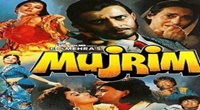
The Hidden Eye- Teesri Aankh Full HD Movie Download

Black Friday Full HD Movie Download

Dulara Full HD Movie Download

Ghar Mei Ram Gali Mein Shyam Full HD Movie Download
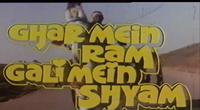
Bheja Fry 2 Full HD Movie Download

Jaal (1986) Full HD Movie Download
.jpg)
Illarikam Full HD Movie Download
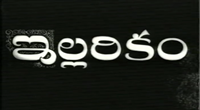
Alludugaru Full HD Movie Download

Ra Ra Krishnayya Full HD Movie Download
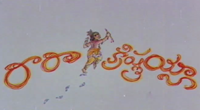
Veerta The Power Full HD Movie Download

Sex and the City Full HD Movie Download

Final Destination 3 Full HD Movie Download

Nammude Naadu Full HD Movie Download

Bharath Bandh Full HD Movie Download
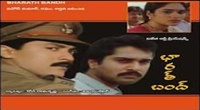
10th Class Full HD Movie Download

Bobby Full HD Movie Download

Pratikaram Full HD Movie Download

Mujhse Fraaandship Karoge Full HD Movie Download

Download latest Movie from bollywood
- 1> baaghi 3
- 2> THE SKY IS PINK MOVIE FULL STORY AND REVIEW
- 3> Luka Chuppi
- 4> TO ALL THE BOYS I’VE LOVED BEFORE
- 5> Kabir Singh
- 6> Street Dancer 3D
- 7> Simmba
- 8> Gone Girl
- 9> The Girl Who Lived
- 10> Ludo
- 11> DILWALE DULHANIA LE JAYENGE
- 12> GUILTY
- 13> The Godfather
- 14> Adventures of Rusty
- 15> Sooryavanshi
- 16> Satyameva Jayate 2
- 17> Thappad
- 18> Bhool Bhulaiyaa 2
- 19> KGFChapter 2
- 20> Mardaani 2
- 21> Pinjar
- 22> Shivaji maharaj
- 23> Ek Villian 2
- 24> Hungama 2
- 25> Divergent
- 26> Mumbai Saga
- 27> The Internship
- 28> HIT (telugu)
- 29> Panga
- 30> The perfect date
- 31> 16 December
- 32> Gopala Gopala (Telugu)
- 33> Brahmastra
- 34> Gangubai Kathiawadi
- 35> Manmadhudu
- 36> Nenu local
- 37> Mahanati
- 38> Shatamanam bavathi
- 39> Lagaan
- 40> After
- 41> MOM
- 42> Shamshera
- 43> Raguvaran BTech
- 44> Khakee
- 45> The villain
- 46> OM
- 47> Mr. perfect
- 48> Bueatifull mind
- 49> Hichki
- 50> Gabbar Singh
- 51> Jogi
- 52> Before Sunrise
- 53> Before Sunset
- 54> Before Midnight
- 55> The Big Bull
- 56> Top Gun: Maverick
- 57> The Purge
- 58> The Sky is Pink
- 59> Laxmmi Bomb
- 60> Sadak 2
- 61> Sufna
- 62> Prithviraj
- 63> PK
- 64> Coolie No 1(2020)
- 65> Black Widow
- 66> Dear Zindagi
- 67> Dil Bechara
- 68> PHIR HERA PHERI
- 69> WAR
- 70> Dostana
- 71> RRR: Roudram Ranam Rudhiram
- 72> Maidan
- 73> Dabbang 3
- 74> Chhalaang
- 75> life as we know it
- 76> SherShaah
- 77> Sandeep Aur Pinky Faraar
- 78> Event Horizon
- 79> 83
- 80> Radhe: Your Most Wanted Bhai
- 81> Gunjan Saxena: The Kargil Girl
- 82> Mr India
- 83> Vivah
- 84> Anokha Bandhan
- 85> Ghost
- 86> Bhoot: Part One - The Haunted Ship
- 87> Haseen Dilruba
- 88> Laal Singh Chaddha
- 89> Qismat
- 90> Rajput
- 91> Drive
- 92> Dil Chahta Hai
- 93> Dil Ki Baazi
- 94> Dil Ka Rishta
- 95> Teesri Manzil
- 96> Dil
- 97> Love Aaj Kal
- 98> Khaali Peeli
- 99> Bunty Aur Babli 2
- 100> Atrangi Re
- 101> Gulabo Sitabo
- 102> Jodi
- 103> Suraj Pe Mangal Bhari
- 104> Deewana
- 105> Attack
- 106> Sardar Udham Singh
- 107> Toofan
- 108> THE LOVEBIRDS
- 109> Jersey
- 110> Ginny Weds Sunny
- 111> Thalaivi
- 112> Shiddat
- 113> Angels vs Zombies
- 114> Koi Mil Gya
- 115> Thank God
- 116> Bhuj: The Pride of India
- 117> Hum Aapke Hain Kaun
- 118> The Platform
- 119> Bird Box
- 120> Roohi Afzana
- 121> Torbaaz
- 122> Nikamma
- 123> World War Z
- 124> Extraction
- 125> Train to Busan
- 126> Life of Pi
- 127> SHAADI MEIN JROOR AANA
- 128> Himmat Aur Mehnat
- 129> To All The Boys: P.S. I Still Love You
- 130> Mimi
- 131> Good Newwz
- 132> Shubh Mangal Zyada Saavdhan
- 133> Raabta
- 134> Harry Potter and the Philosopher's Stone
- 135> Harry Potter and the Chamber of Secrets
- 136> Chhapaak
- 137> War of the Worlds
- 138> Harry Potter and the Prisoner of Azkaban
- 139> Harry Potter and the Goblet of Fire
- 140> MURDER MYSTERY
- 141> Shakuntala Devi
- 142> Bachchan Pandey
- 143> Jayeshbhai Jordar
- 144> Sheer Qorma
- 145> Saina
- 146> 'O' Pushpa I hate tears
- 147> Kedarnath
- 148> MS Dhoni The Untold Story
- 149> Chhichhore
- 150> Badhaai Ho
- 151> Unstoppable
- 152> Oz the Great And Powerful
- 153> The Girl on the Train
- 154> Haathi Mere Saathi 2020
- 155> The Conjuring: The Devil Made Me Do It
- 156> Gandhi Se Pehle Gandhi
- 157> The Song of Scorpions
- 158> Srimanthudu
- 159> Hello Guru Prema Kosame
- 160> Beauty and The Beast
- 161> Black Panther
- 162> Charlie and the Chocolate Factory
- 163> Bole Chudiyan
- 164> Fidaa
- 165> Duvvada Jagannadham
- 166> Bruce Lee: The Fighter
- 167> Hyper
- 168> Yaara
- 169> Red (2020)
- 170> Shivam
- 171> That Is Mahalakshmi
- 172> Nishabdham
- 173> Aashram 2020 web series
- 174> Laxmii
- 175> Mismatched
- 176> STUDENT OF THE YEAR 2
- 177> NAIL POLISH
- 178> Ramprasad Ki Tehrvi
- 179> KAAGAZ
- 180> 12 o Clock
- 181> The Power
- 182> bolo hau
- 183> Tribhanga
- 184> JAMUN
- 185> Madam Chief Minister
- 186> Maasaab
- 187> Aadhaar
- 188> Tanhaji
- 189> Bhaagi 3
- 190> Bhootnath
- 191> MALANG
- 192> Jai Mummy Di
- 193> Haathi Mere Saathi 2021
- 194> Shakeela
- 195> Unpaused
- 196> Annayya
- 197> Vamsoddharakudu
- 198> Mrugaraju
- 199> Narasimha Naidu
- 200> Sankranti
- 201> Manasu Maata Vinadhu
- 202> Anjaane
- 203> Apaharan
- 204> Bachke Rehna Re Baba
- 205> Bewafaa
- 206> Roohi
- 207> Radhe
- 208> Zindagi Khoobsoorat Hai
- 209> Yeh Mohabbat Hai
- 210> Yeh Kya Ho Raha Hai?
- 211> The Tomorrow War
- 212> DehradunDiary
- 213> Meri Shaadi Karaoo
- 214> Matruu Ki Bijlee Ka Mandola
- 215> No One Killed Jesica
- 216> Aag Ka Goola
- 217> Eight Million Dollars
- 218> Three Hundred
- 219> Cats and Dog
- 220> Decoy
- 221> Gold Rush
- 222> You Have Got Mail
- 223> Final Destination three
- 224> Tofan
- 225> Jungle
